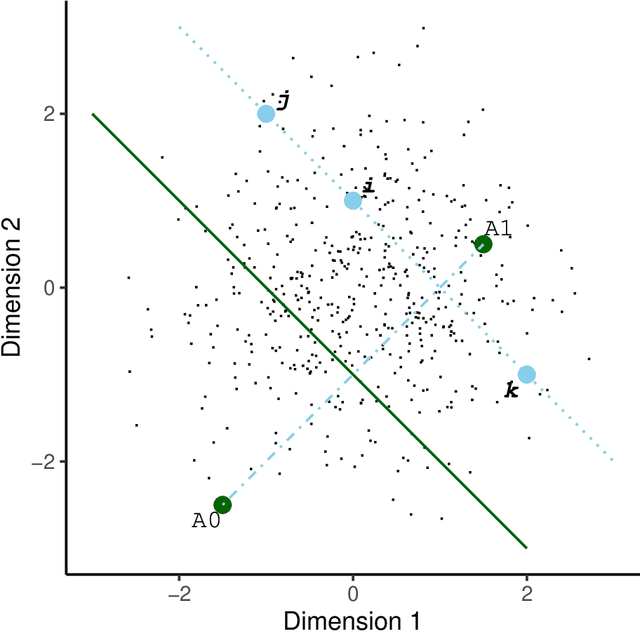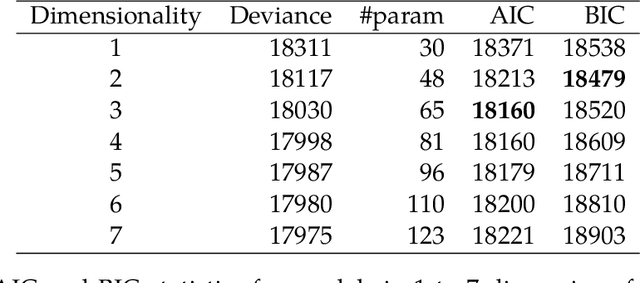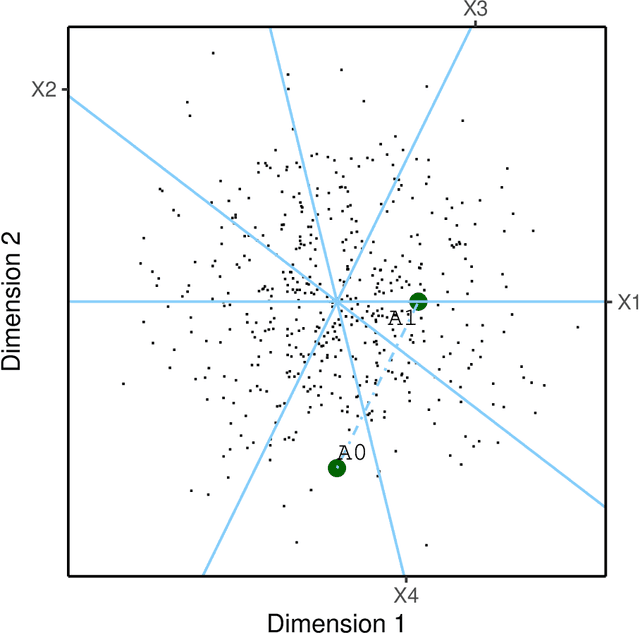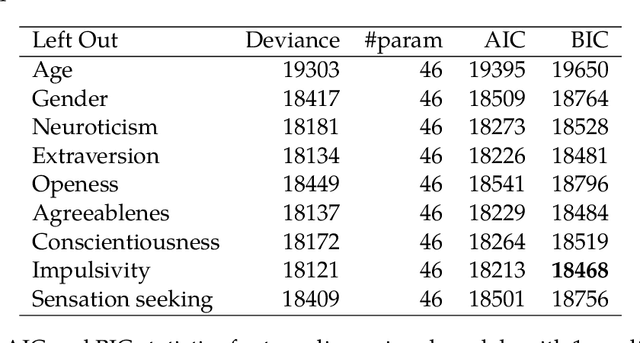Patrick J. F. Groenen
Convex Clustering through MM: An Efficient Algorithm to Perform Hierarchical Clustering
Nov 03, 2022Abstract:Convex clustering is a modern method with both hierarchical and $k$-means clustering characteristics. Although convex clustering can capture the complex clustering structure hidden in data, the existing convex clustering algorithms are not scalable to large data sets with sample sizes greater than ten thousand. Moreover, it is known that convex clustering sometimes fails to produce hierarchical clustering structures. This undesirable phenomenon is called cluster split and makes it difficult to interpret clustering results. In this paper, we propose convex clustering through majorization-minimization (CCMM) -- an iterative algorithm that uses cluster fusions and sparsity to enforce a complete cluster hierarchy with reduced memory usage. In the CCMM algorithm, the diagonal majorization technique makes a highly efficient update for each iteration. With a current desktop computer, the CCMM algorithm can solve a single clustering problem featuring over one million objects in seven-dimensional space within 70 seconds.
The MELODIC family for simultaneous binary logistic regression in a reduced space
Feb 16, 2021



Abstract:Logistic regression is a commonly used method for binary classification. Researchers often have more than a single binary response variable and simultaneous analysis is beneficial because it provides insight into the dependencies among response variables as well as between the predictor variables and the responses. Moreover, in such a simultaneous analysis the equations can lend each other strength, which might increase predictive accuracy. In this paper, we propose the MELODIC family for simultaneous binary logistic regression modeling. In this family, the regression models are defined in a Euclidean space of reduced dimension, based on a distance rule. The model may be interpreted in terms of logistic regression coefficients or in terms of a biplot. We discuss a fast iterative majorization (or MM) algorithm for parameter estimation. Two applications are shown in detail: one relating personality characteristics to drug consumption profiles and one relating personality characteristics to depressive and anxiety disorders. We present a thorough comparison of our MELODIC family with alternative approaches for multivariate binary data.
 Add to Chrome
Add to Chrome Add to Firefox
Add to Firefox Add to Edge
Add to Edge